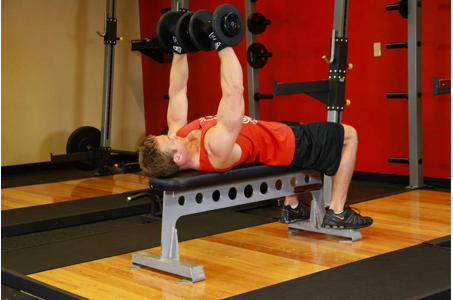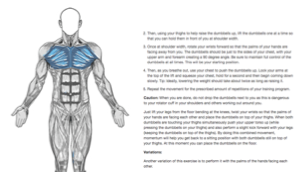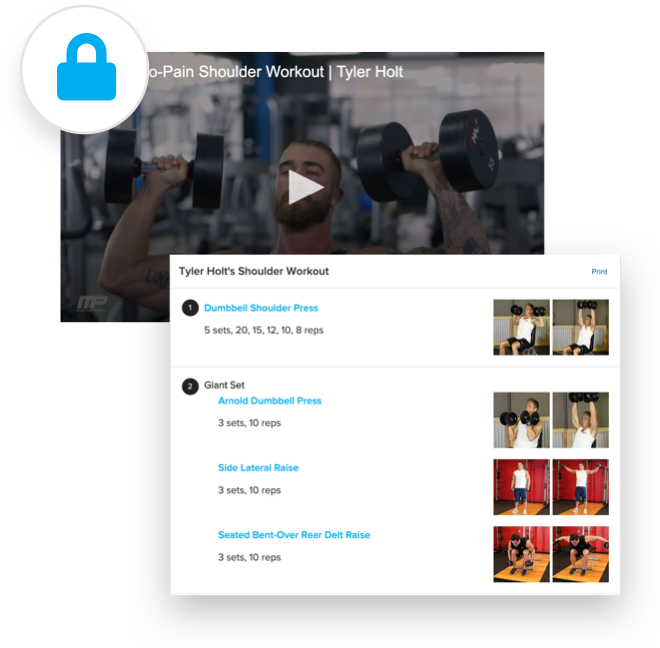You just made the decision to start training for your very first marathon. Great! Now the planning begins. You need to get your running schedule, your recovery days, and your nutrition plan in place. But don't forget to schedule time for the weight room!
Weight training is often overlooked as part of marathon training. Some running coaches have historically dismissed it on the grounds that any extra weight or bulk is bad for a runner. But many top runners and coaches have come around to the realization that muscular strength and conditioning are important both for runners' performance and their overall health.
Running long distances is hard on the body. Many runners begin to lose lean muscle tissue during marathon training, but a good weight training program can help you stay strong throughout your training and more easily transition to your post-marathon workouts.
Do not feel weaker at the end of the race than you were at the start! Incorporate weights and pass the stragglers like they're standing still.
Lift Around the Long Runs
Of course your highest priority while training for a marathon is running. Time your weight training properly around your runs.
Schedule your weight training on days when you aren't doing long runs. Running long distances is physically draining, and adding weight training to that burden risks overstressing the body and decreasing your conditioning. Runners who exert too much find themselves dragging and weakening toward the end of their training.
Make sure to preserve a day off to rest and recover between weightlifting sessions. In addition, mix in a few rest days from all workouts. It's imperative that you give your body the time recover and repair the damage done by intense training.
Remember: You can't get stronger if you don't recover.
Training Frequency and Exercise Selection
Preserving lean muscle doesn't require the same lifting intensity as building bulk. A program where you hit each muscle group twice per week, or at minimum once per week, will suffice.
When training for a marathon, your overall training volume should be kept low, and compound exercises are a must.
Intensive isolation work has the potential to tax your reserves, making it harder to recover and leaves you with less energy to devote to your runs.
As a general rule, limit yourself to two sets of compound exercises per workout.
This will allow you to fit in a complete range of exercises while lowering the chances that you overdo any of them.
The fewer exercises you can do per workout while still hitting all the main muscle groups, the better off you will be.
You'll want to include leg strengthening movements in your workout plan since these muscles are central to running, but don't overlook upper body exercises.
Following a workout program that targets all major muscle groups is important in maintaining muscular balance and avoiding injury, but it can help your marathon performance as well.
A strong upper body is essential to maintaining a good arm movement pattern while running, especially once fatigue starts to set in. Furthermore, if your upper body is weak from the start, it'll be faster to fatigue during your runs, which can impact your focus and concentration.
Marathon Weightlifting Workout
Now that you know the priorities behind your routine, let's look at a sample workout.
Below are two different workout sessions, each to be performed once throughout the week. Make sure you add a thorough warm-up and cool-down period to each of these sessions in order to avoid injury.

BodyFit
$6.99/month- 2,500+ expert-created single workouts
- 3,500+ how-to exercise videos
- Detailed workout instruction
- Step-by-step workout tips
- Training at gym or at home
- Access to Workout Plans
- Access to Bodyfit App
- Store Discounts
Already have a Bodybuilding.com account with BodyFit? Sign In

What comes with BodyFit?

- Instructional Videos
Don't risk doing a workout improperly! Avoid injury and keep your form in check with in-depth instructional videos.

- How-to Images
View our enormous library of workout photos and see exactly how each exercise should be done before you give it a shot.

- Step-by-Step Instructions
Quickly read through our step-by-step directions to ensure you're doing each workout correctly the first time, every time.

BodyFit
$6.99/month- 2,500+ expert-created single workouts
- 3,500+ how-to exercise videos
- Detailed workout instruction
- Step-by-step workout tips
- Training at gym or at home
- Access to Workout Plans
- Access to Bodyfit App
- Store Discounts
Already have a Bodybuilding.com account with BodyFit? Sign In

What comes with BodyFit?

- Instructional Videos
Don't risk doing a workout improperly! Avoid injury and keep your form in check with in-depth instructional videos.

- How-to Images
View our enormous library of workout photos and see exactly how each exercise should be done before you give it a shot.

- Step-by-Step Instructions
Quickly read through our step-by-step directions to ensure you're doing each workout correctly the first time, every time.
Recovery Techniques to Consider
Take steps to ensure you recover optimally between each session to better prepare yourself for the runs ahead.
Get at least eight hours of sleep each night. If you aren't sleeping enough, you will not recover. It's a must.
A post-workout stretching regimen minimizes the inevitable aches and twinges that come with training. Consider taking hot baths or going in for an occasional massage. Both of these are fantastic recovery techniques, and after a long, difficult run, you've earned the ease.
Nutrition and Supplementation Tips
You're going to burn a lot of calories running as much as marathon training requires. Eating properly throughout your training is crucial to keep your energy levels up and maximizing recovery.
In-race nutrition is a science unto itself, but in general, you should prioritize protein and carbs both before and after you run. These are the types of fuel that the body needs most during intensive work, and supplements can help you find them in easily digestible forms.
Consider utilizing whey protein powder, which will quickly help you meet your protein needs. The amino acid glutamine is favored by a broad range of athletes to aid in the recovery and repair process, as are branched-chain amino acids, which can safeguard against lean muscle tissue loss.






